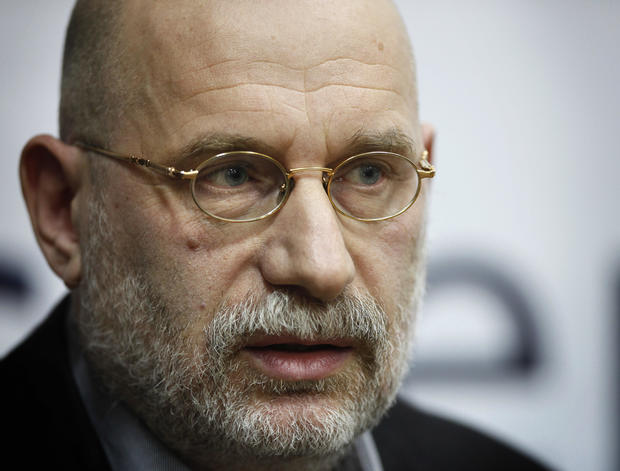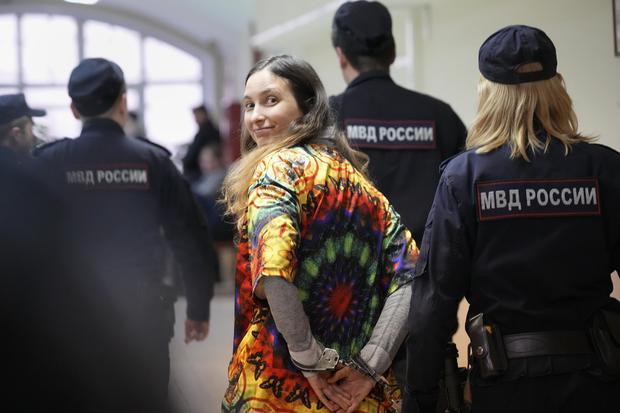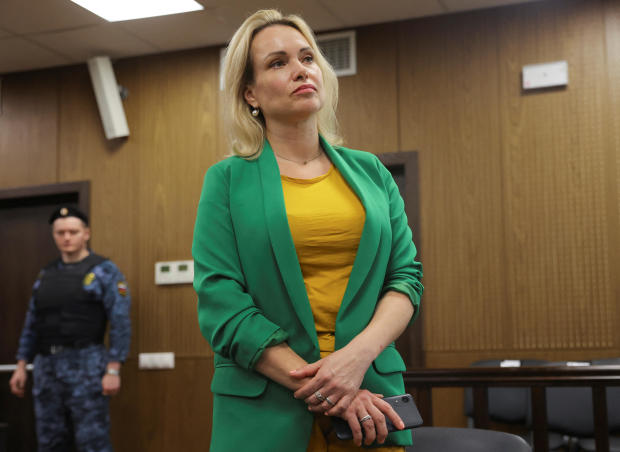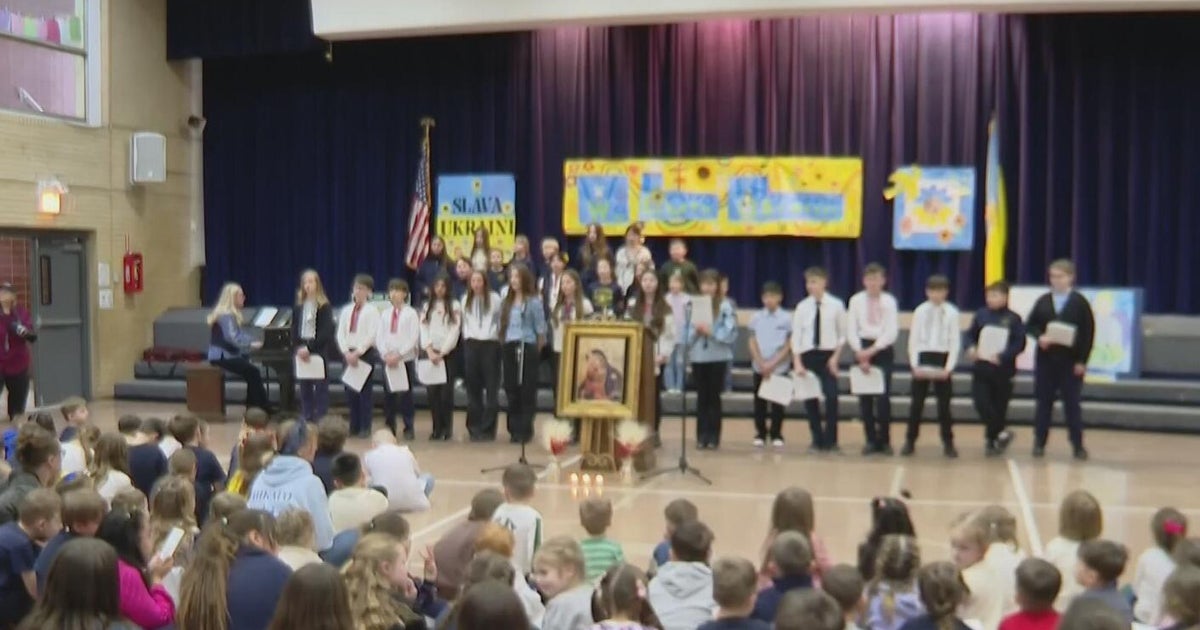Russian court orders arrest of bestselling writer after he was pranked into expressing support for Ukraine on phone call
A Moscow court ordered the arrest Tuesday of a bestselling detective novelist and dissident on charges of "justifying terrorism," two months after he was pranked by two pro-Kremlin activists into expressing support for Ukraine on a phone call.
Moscow's Basmanny District Court ordered Grigory Chkhartishvili, who is known under the pen name Boris Akunin and lives in London, to be taken into custody once he's detained.
In December, Russian authorities added the Russian-Georgian writer to Russia's register of "extremists and terrorists" over the call, in which two pranksters known as Vovan and Lexus posed as Ukrainian officials. A criminal case was opened against Akunin for "discrediting the army" - specifically for "justifying terrorism" and spreading "fake news" about the Russian military.
The BBC reported that Akunin responded to the justice ministry's announcement by writing: "Terrorists declared me a terrorist."
Discrediting the Russian military is a criminal offense under a law adopted after Russia sent troops into Ukraine in February 2022. The law is regularly used against Kremlin critics - although it is unlikely that Akunin, who lives in London, will face detention.
After the authorities branded Akunin an extremist, one of Russia's leading publishers, AST, announced it was suspending the printing and sale of his books. In an online statement, Akunin described his publisher's move as "an important milestone," saying that Russian writers had not been accused of terrorism since Soviet dictator Josef Stalin's purges.
"The Russian authorities' ongoing persecution of Boris Akunin and this unfounded criminal case exemplifies their sheer vindictiveness against anyone who dares to express dissent," Marie Struthers, Amnesty International's Director for Eastern Europe and Central Asia, said in December.
Also on Tuesday, the allies of top Kremlin foe Alexei Navalny reported that the politician and anti-corruption campaigner had been placed in a one-man punishment cell in the remote Arctic penal colony where he is serving out a 19-year sentence.
Navalny's press secretary Kira Yarmysh did not specify the reason, but said that Navalny had already spent months in solitary confinement since he was jailed in 2021, facing the punishment over two dozen times over minor infractions such as failing to properly button his prison uniform.
Navalny, 47, has been behind bars since January 2021, when he returned to Moscow after recuperating in Germany from nerve agent poisoning that he blamed on the Kremlin. He has since received three prison terms, including on charges of extremism, fraud and contempt of court.
Navalny and his allies have rejected all charges against him as politically motivated, and accused the Kremlin of seeking to keep him in jail for life.
Crackdown on antiwar stances
According to OVD-Info, another prominent rights group that monitors political arrests and provides legal aid, a total of 19,834 Russians have been arrested between Feb. 24, when the war began, and late October 2023 for speaking out or demonstrating against the war.
About 750 people have faced criminal charges for their antiwar stances, and over 8,100 faced petty charges of discrediting the army, punishable by a fine or a short stint in jail.
Long terms have been handed out in the highest-profile cases. In November, a Russian court convicted artist and musician Sasha Skochilenko for swapping supermarket price tags with antiwar messages, sentencing her to seven years in prison in one of the highest-profile cases involving the recent crackdown on free speech.
In October, a court in Moscow handed a former state TV journalist an 8 1/2-year prison term in absentia for protesting the war in Ukraine. Marina Ovsyannikova, who was charged with spreading false information about the Russian army, was detained and placed under house arrest, but managed to escape to France with her daughter. Russian authorities put her on a wanted list and prosecuted and tried her in absentia.
In December 2022, prominent opposition figure Ilya Yashin received 8 1/2 years in prison on similar charges, as has Moscow student activist Dmitry Ivanov. Yashin's colleague on a Moscow municipal council, Alexei Gorinov, got seven years.
Similar sentences were handed to Russians convicted in absentia, like cookbook author Veronika Belotserkovskaya, former lawmaker Alexander Nevzorov and several others.






